#Prophet Ismail (AS
Explore tagged Tumblr posts
Text
Prophet ISMAIL A.S
Home Prophets Couriers of Allah Prophet ISMAIL A.S Prophet ISMAIL A.S Prophet Ismail is the child of Prophet Abraham (PBUH) and the dad of the Bedouins. His accounts contain numerous thoughts and motivations and show in many parts the significance of being a Muslim - One who submits to the sets of his Maker. Peril Ismail, the child of Courier Ibrahim (A.S) and Danger (Khadar), was one of the 124,000 prophets sent by God. He (A.S) is a prophet and a courier of God. The name of the gospel is Ishmael. Birth He was brought into the world in 1910 B.C. in present-day Palestine and English Columbia. He kicked the bucket in 1774 at 136 years old. Agar's mom (PSL) was the Egyptian pharaoh's girl, a princess. At the point when Abraham was conceived, he was around 86 years of age, and his mom was 25 years of age.
3 notes
·
View notes
Text
Pearls of Peace - Mufti Ismail Menk
Ep. 1 https://youtu.be/LZAwE5kQfuQ
Ep. 2 https://youtu.be/GO2MZ25iK5U
Ep. 3 https://youtu.be/WrC9fy2YFFI
Ep. 4 https://youtu.be/W-vlb6Dp7Xs
Ep. 5 https://youtu.be/jrn3rZXxlY4
Full playlist 27 vids
https://youtube.com/playlist?list=PLs-QYOYqew75dMys3_JULLM_KlxFqmFmd&si=o5lyU4VjaTGfRa7-
1 note
·
View note
Text
Over the centuries, many believers have found inspiration from Hagar's struggles as the mother of Prophet Ismail (AS) and the wife of Prophet Ibrahim (AS).
#umrah service#exclusive umrah#umrah guide#hajj and umrah#umrah package 2024#umrah experience#umrah 2024#spiritual journey#faith in islam#umrah tour#Hagar#Prophet Ibrahim (AS)#Prophet Ismail (AS#hajj 2024#islamic guidance#islamic pilgrims#umrah tour package
0 notes
Text
New Ismaili Gnosis Podcast: Ep. 1 on the Spiritual Roles of Prophet Muhammad
We are pleased to announce a new Ismaili Gnosis Podcast called Ismaili Gnosis Chats. Each episode features a conversation discussing Ismaili Muslim beliefs, practices, and historical themes – including the Existence of God, Ismaili Tawhid, Proof of Prophethood, the Qur’an, Imamat, Dasond, Ismaili Prayers, etc. We highly recommend listening to Ismaili Gnosis Chats for people who want to benefit…
0 notes
Text

From Quran Kareem
#Islam#Allah#Prophet Muhammad#Qur'an#Ummah#Prophet Ibrahim#Prophet Yaqub#Prophet Ismail#Prophet Ishaq#Surah Al-Baqarah#Death#202407#2024
1 note
·
View note
Text
dhul hijjah - a second chance after ramadan ♡
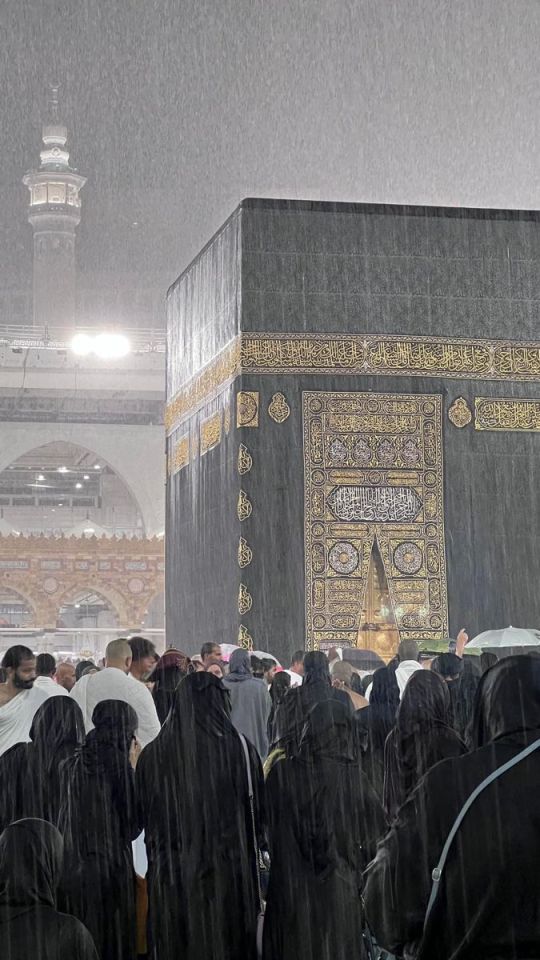
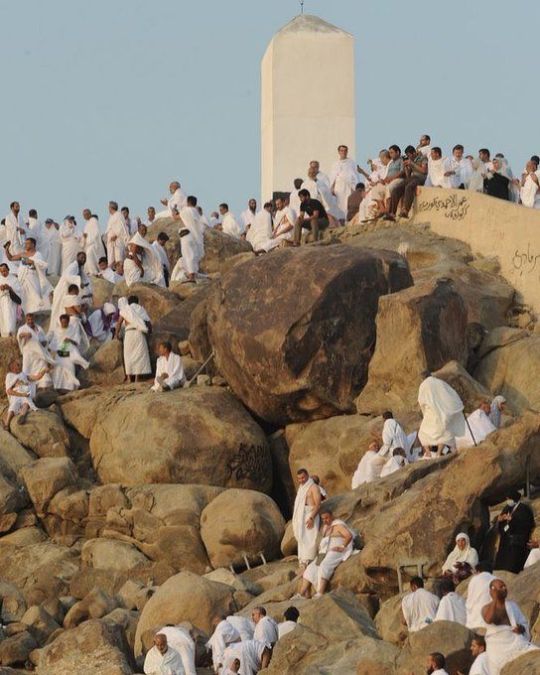
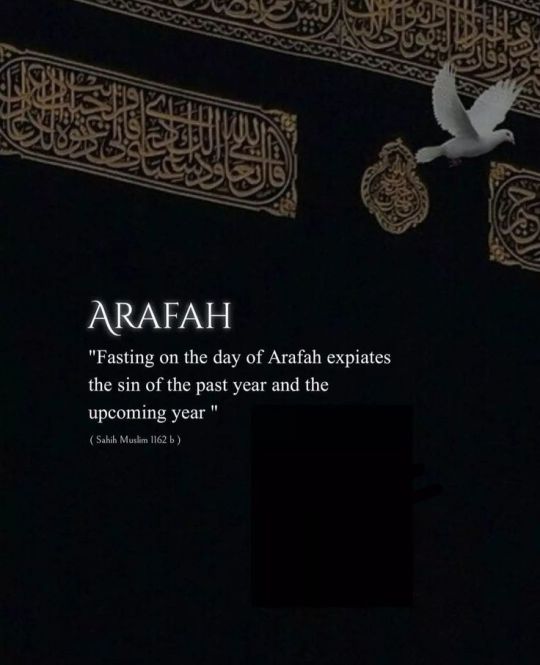
what is dhul hijjah?
meaning 'the month of the pilgrimage' as many muslims go on hajj in this time, dhul hijjah is the twelfth and final month of the islamic year. the first ten days of this month are the best days of the entire year. yes - even better than ramadan:
it was narrated by Ibn Abbas that the Prophet ﷺ said: “There are no days during which righteous deeds are more beloved to Allah than these days,” meaning the (first) ten days of Dhul- Hijjah" - Sunan Ibn Majah 1727
these ten days encompass the day of Arafah, Hajj, and Eid ul-Adha
this month, we remember prophet Ibrahim (as) and how he was told by Allah to sacrifice his son, Hadrat Ismail (as). he took hadrat Ismail (as) on top of mount Arafat for the sacrifice, and just as he was about to sacrifice Ismail (as), Allah told him to stop as He was only testing him to see if he was truly obedient and willing to sacrifice everything for Allah's sake. the 9th day of dhul hijjah is the day of Arafah, commemorating this event.
we also remember how Allah told Ibrahim (as) to leave Ismail (as) and his wife, Hadrat Hajar, in a desert - which, today, is present day makkah.
this month is therefore about obedience, surrender and sacrifice for Allah سُبْحَٰنَهُۥ وَتَعَٰلَىٰ.
depending on the sighting of the moon, dhul hijjah is expected to begin friday 7th june!
what to do in these first ten days?
even if you're not going for hajj, you should use these blessed days for extra righteous deeds and worship, especially on the day of arafah - the 9th day (which falls on 16th june this year, Insha'Allah) - the day before eid.
FASTING
it is a sunnah to fast the first 9 days of dhul hijjah. if you won't fast all 9 days, then it's best to prioritise the 9th day, the day of Arafah. this is because the prophet ﷺ said: “Fasting on the Day of ‘Arafah expiates for the sins of the year before and the year after.” (Sunan Ibn Majah 1730) however, unless you're going for hajj and you're actually at Afarah, then you cannot as it's forbidden to fast while on the mountain.
DHIKR
it's extremely important to increase your dhikr in this time. recite the tasbeeh, tahmeed, takbeer and tahleel often: tasbeeh - subhanallah (Holy is Allah) tahmeed - alhamdulillah (all praise belongs to Allah) takbeer - Allah Akbar (Allah is the Greatest) tahleel - laa ilaha ill-Allah (there is no God except Allah) Allah said “remembrance of Allah indeed is the greatest virtue” (29:46) - it brings you closer to Him, you feel more certain in His powers that He can remove any hardship which makes the heart feel less anxious, Allah becomes your Friend, you'll become successful (remember Allah often so you may prosper” (8:46), it cleans your heart, it protects you from harm, Allah becomes pleased with you. it truly is the greatest virtue.
also recite istighfar (astagfirullah) and repent for your sins
the best dua to recite on the day of Arafah itself is:
laa ilaaha ill-allaahu, waḥdahu laa shareeka lah, lahul-mulku wa lahul-ḥamdu, wa huwa ‛alaa kulli shay’in qadeer - (None has the right to be worshipped except Allah, alone, without partner. To Him belongs sovereignty and all praise and He is over all things omnipotent)
OTHER INCREASED ACTS OF WORSHIP
do extra voluntary acts of worship (nawafil, sunnah prayers, duha prayers)
read a lot of Qur'an
listen to the Qur'an more
send many, many salutations to the Prophet ﷺ (durood sharif!)
practice gratitude. what are you thankful for?
pray tahajjud
give sadaqah / donate to a charity. make sacrifices!
be kind!
read translation and commentary of surahs
listen to islamic podcasts/read islamic books to increase your knowledge
memorise a surah
talk to Allah!!!! pray!!!!
try and increase your acts of worship throughout the 9 days and especially on the 9th day, the day of arafah, which is the day before eid! (16th june Insha'Allah, depending on where you are in the world)
10th day - eid ul adha
on the tenth day of dhul hijjah (eid), our beloved Prophet ﷺ used to give Qurbani (a sacrifice) every year to remember Ibrahim (as) almost sacrificing his son for Allah سُبْحَٰنَهُۥ وَتَعَٰلَىٰ's sake. muslims sacrifice animals all over the world to follow this sunnah, and donating qurbani is encouraged for every Muslim who is financially able to do so (this can be done online)

may Allah سُبْحَٰنَهُۥ وَتَعَٰلَىٰ make it easy for us to utilise these blessed and best 10 days to the best of our abilities, forgive us of our sins, draw us ever nearer to Him and allow us to become His best friends, Allahumma Ameen ♡
#islam#dhul hijjah#arafah#muslim#religion#sabrgirl#ramadan#allah#quran#prayers#islamic#muslims#arafat#jummah
178 notes
·
View notes
Text
Never forget Abu Obaida’s words:
“O OUR FAMILY, O OUR PEOPLE, O OUR NATION, IT IS A SOURCE OF PRIDE FOR OUR RESISTANCE, OUR MOVEMENT, AND ITS BRIGADES IN THIS BATTLE AND THROUGHOUT IT IS THAT IT OFFERS MARTYRS FROM ITS LEADERS BEFORE ITS SOLDIERS. THE ZIONIST CELEBRATION OF THE ASSASSINATION OF OUR MOVEMENT'S LEADERS AND RESISTANCE LEADERS, FOREMOST THE GREAT FIGHTER LEADER ISMAIL HANIYEH, MAY ALLAH HAVE MERCY ON HIM, AND THE GREAT MARTYR LEADER SAYYED HASSAN NASRALLAH SECRETARY-GENERAL OF HEZBOLLAH, MAY ALLAH ACCEPT HIM, AND OTHERS FROM THE CONVOY OF RIGHTEOUS MARTYRS ON ALL FRONTS, IT IS THE GREATEST EVIDENCE THAT THIS ARROGANT ENEMY DOES NOT UNDERSTAND THE LESSONS OF HISTORY, THE REALITIES OF THE PRESENT, NOR THE CULTURE AND WILL OF OUR PEOPLE AND OUR NATION. THEIR JOY OVER THE ASSASSINATIONS IS A TEMPORARY, ILLUSOR ANESTHETIC. A SHORT-LIVED JOY AND A FLEETING INTOXICATION, FOR WHEN HAVE ASSASSINATIONS EVER BEEN THE END OF LIBERATION MOVEMENTS AND RESISTANCE ANYWHERE IN THE WORLD? ESPECIALLY IN THE HISTORY AND PRESENT OF OUR PALESTINIAN AND ARAB REVOLUTION. IF ASSASSINATIONS WERE VICTORIES, THE RESISTANCE AGAINST THE OCCUPATION WOULD HAVE ENDED WITH THE ASSASSINATION OF SHEIKH IZZ EL-DIN AL-QASSAM IN GROVES OF YA'BAD IN JENIN NINETY YEARS AGO. IF ASSASSINATIONS WERE VICTORIES, THE AL-QASSAM BRIGADES WOULD NOT HAVE CARRIED OUT OPERATION AL-AQSA FLOOD 20 YEARS AFTER THE ASSASSINATION OF THE MOST PROMINENT FOUNDERS OF HAMAS AND THE AL-QASSAM BRIGADES. AND IF BRUTALITY, HOUSE DEMOLITIONS, AND REVENGE AGAINST INNOCENTS STOPPED THE RESISTANCE, THE HEROES OF GAZA WOULD NOT HUMILIATE THE ENEMY IN EVERY STREET AND ALLEY AFTER A BRUTAL GENOCIDAL WAR. NOR WOULD THE HEROES OF THE WEST BANK TODAY RISE UP, FIGHT, AND TROUBLE THE ENEMY FROM JENIN TO AL-KHALIL 22 YEARS AFTER THE SO-CALLED "OPERATION DEFENSIVE SHIELD." THUS, THE POLICY OF ASSASSINATING GREAT HEROES IS THE END OF GOODNESS AND THE TRUE SIGN OF VICTORY FOR THE FREE. AT THE SAME TIME, IT IS A SOURCE OF REGRET AND FRUSTRATION FOR THE AGGRESSORS. OUR LORD, THE ALL-KNOWING, THE ALL-WISE, HAS COMMENTED ON THIS WITH HIS WORDS, "THEY PLOT AND PLAN, AND ALLAH TOO PLANS, BUT ALLAH IS THE BEST OF PLANNERS." WE ACT WITH ALLAH'S WILL, UNDER HIS WATCHFUL EYE, AND HE REPLACES ONE LEADER WITH ANOTHER, ONE SOLDIER WITH TEN, AND ONE MARTYR WITH A THOUSAND FIGHTERS, FOR THIS LAND PRODUCES FIGHTERS AS IT PRODUCES OLIVES, AND IT PASSES DOWN DIGNITY TO FUTURE GENERATIONS, AS IT HAS INHERITED FROM THOUSANDS OF PROPHETS, COMPANIONS, RIGHTEOUS MEN, AND FIGHTERS WHO REST IN ITS SACRED SOIL.”
Rest in paradise Yahya Sinwar. A truly iconic leader and one of the greatest heroes this world has ever seen.
Palestine will be free! 🇵🇸
13 notes
·
View notes
Text
Tafsir Ibn Kathir: Surah al-Maryam Ayah 54-55
In the Name of Allah, the Most Gracious, the Most Merciful
19:54 And mention in the Book, Ismail. Verily, he was true to what he promised, and he was a
Messenger, (and) a Prophet.
19:55 And he would enjoin on his family and his people the Salah and the Zakah, and his Lord waspleased with him.
Mentioning Ismail
And mention in the Book, Ismail. Verily, he was true to what he promised. Here Allah has commended Ismail, the son of Ibrahim, the Friend of Allah. He (Ismail) is the father of all of the Arabs of the Hijaz because he was true to what he promised. Ibn Jurayj said, "He did not make any promise to his Lord, except that he fulfilled it.'' He never obligated himself to do any act of worship with a vow, except that he fulfilled it and carried it out, giving it its full due. Some said, ِ?he was) true to what he promised), "This was said about him because he said to his father,(If Allah wills you will find me of the patient), (37:102). So he was truthful in that.” Being true to one's promise is one of the praiseworthy
characteristics, just as breaking one's promise is of the detested characteristics. Allah, the Exalted, says, O you who believe! Why do you say that which you do not do! Most hateful it is with Allah that you say that which you do not do. (61:2-3)
The Messenger of Allah said, The sign of the hypocrite is three things.
• When he speaks, he lies;
• when he promises, he breaks his promise;
• when he is entrusted with something, he is
disloyal to his trust.
Thus, if these are the characteristics of the hypocrites, then behaving contrary to these is a characteristic of the true believer. For this reason, Allah commended His servant and Messenger Ismail, for he was true to his promise. Likewise, the Messenger of Allah was true to his promise.He did not promise anyone anything, except that he fulfilled his promise to that person. He also commended Abu Al-`As bin Ar-Rabi, the husband of his daughter
Zaynab, by saying, He spoke to me and he told me the truth, and he promised me and he fulfilled his promise to me. When the Prophet died, the Khalifah (his successor), Abu Bakr As-Siddiq said, "Whoever received any promise from the Messenger of Allah or was owed any debt by him, then let him come to me and I will fulfill it on his behalf.''
So Jabir bin Abdullah came and related that the Messenger of Allah said,
If the wealth of Bahrain comes (to me), then I would give you such and such and such.
This meant that he would fill his hands with wealth. Therefore, when the wealth of Bahrain came (to them), Abu Bakr commanded Jabir to come and fill his hands from that wealth. Then, he commanded him to do so again, until he collected five hundred Dirhams.
Then, Abu Bakr gave him its double along with it. (i.e. one thousand extra Dirhams).
Concerning Allah's statement, and he was a Messenger, (and) a Prophet.
In this is a proof of Ismail's favored status over his brother, Ishaq.Ishaq was only described as being a Prophet, but Ismail was described with both Prophethood and Messengership.
It is confirmed in Sahih Muslim that the Messenger of Allah said, Verily, Allah chose Ismail from the sons of Ibrahim...Then, Imam Muslim mentions the rest of the Hadith in its entirety.
However, this statement proves the correctness of what we have said. Allah said, And he would enjoin on his family and his people the Salah and the Zakah, and his Lord was pleased with him.
This is also a beautiful form of praise, a commendable quality, and and upright characteristic. He was commanded in this way because of his persistence in obedience of his Lord, and enjoining his family to do so. This is as Allah said to His Messenger, And enjoin the Salah on your family, and be patient with them. Also, Allah, the Exalted, said, O you who believe! Protect yourselves and your families against a Fire (Hell) whose fuel is men and stones, over which are (appointed) angels stern (and) severe, who disobey not, (from executing) the commands they receive from Allah, but do that which they are commanded. (66:6)
This means to command them to do good, forbid them from evil and do not neglect them. If you do so, and they obey your command, the Fire (of Hell) will not devour them on the Day of Resurrection. It has been reported in a Hadith from Abu Hurayrah that the Messenger of Allah said, May Allah have mercy upon a man who gets up at night to pray and he wakes his wife. If she refuses to get up, he sprinkles water in her face. May Allah have mercy upon a woman who gets up at night to pray and she wakes her husband. If he refuses to get up, she prinkles water in his face. This Hadith was recorded by Abu Dawud and Ibn Majah.
#Allah#god#islam#muslim#quran#revert#convert#convert islam#revert islam#reverthelp#revert help#revert help team#help#islamhelp#converthelp#prayer#salah#muslimah#reminder#dua#hijab#religion#muhammed#new muslim#new revert#new convert#how to convert to islam#convert to islam#welcome to islam
8 notes
·
View notes
Text
by Robert Williams
To assess correctly the damage that Qatari influence in the US is causing, it is essential to understand what Qatar stands for and promotes. Qatar has for decades cultivated a close relationship with the Islamist Muslim Brotherhood, whose motto is: “‘Allah is our objective; the Prophet is our leader; the Quran is our law; Jihad is our way; dying in the way of Allah is our highest hope.” It aims to ensure that Islamic law, Sharia, governs all countries and all matters.
Hamas, an offshoot of the Muslim Brotherhood, has enjoyed Qatar as its main sponsor, to the tune of up to $360 million a year, and was until recently the home of Hamas’ leadership. In 2012, Ismail Haniyeh, head of the terrorist group’s political bureau, Mousa Abu Marzook, and Khaled Mashaal, among others, moved to Qatar for a life of luxury. This month, likely because of Israel’s announcement that it will hunt down and eliminate Hamas leaders in Qatar and Turkey, the Qatar-based Hamas officials reportedly fled to other countries.
Qatar was also home to Sheikh Yusuf al-Qaradawi, the spiritual leader of the Muslim Brotherhood, who was exiled from Egypt until his death in September 2022. According to the Meir Amit Intelligence and Terrorism Information Center:
💬 “Qaradawi is mainly known as the key figure in shaping the concept of violent jihad and the one who allowed carrying out terror attacks, including suicide bombing attacks, against Israeli citizens, the US forces in Iraq, and some of the Arab regimes. Because of that, he was banned from entering Western countries and some Arab countries…. In 1999, he was banned from entering the USA. In 2009, he was banned from entering Britain…”
Qaradawi also founded many radical Islamist organizations which are funded by Qatar. These include the International Union of Muslim Scholars, which released a statement that called the October 7 massacre perpetrated by Hamas against communities in southern Israel an “effective” and “mandatory development of legitimate resistance” and said that Muslims have a religious duty to support their brothers and sisters “throughout all of Palestine, especially in Al-Aqsa, Jerusalem, and Gaza.”
Qatar is still home to the lavishly-funded television network Al Jazeera, founded in 1996 by Qatar’s Emir, Sheikh Hamad ibn Khalifa Al Thani. Called the ���mouthpiece of the Muslim Brotherhood,” Al Jazeera began the violent “Arab Spring,” which “brought the return of autocratic rulers.”
In 2017, Saudi Arabia, the United Arab Emirates, Bahrain, and Egypt made 13 demands of Qatar: “to cut off relations with Iran, shutter Al Jazeera, and stop granting Qatari citizenship to other countries’ exiled oppositionists.” They subsequently cut ties with Qatar over its failure to agree to any of the demands, including ending its support for terrorism, the Muslim Brotherhood, and Al Jazeera.
The Saudi state-run news agency SPA said at the time:
💬 “[Qatar] embraces multiple terrorist and sectarian groups aimed at disturbing stability in the region, including the Muslim Brotherhood, ISIS [Islamic State] and al-Qaeda, and promotes the message and schemes of these groups through their media constantly,”
US universities and colleges are happy to see this kind of influence on their campuses in exchange for billions of dollars in Qatari donations. According to ISGAP:
💬 “[F]oreign donations from Qatar, especially, have had a substantial impact on fomenting growing levels of antisemitic discourse and campus politics at US universities, as well as growing support for anti-democratic values within these institutions of higher education.”
#qatar#american universities#ivy league#ivy league schools#foreign influence#muslim brotherhood#yusef qaradawi
35 notes
·
View notes
Text
A Sinner in Mecca

Director : Parvez Sharma
Producer : Parvez Sharma
Executive producer : Andrew Herwitz
Writers : Parvez Sharma, Sajid Akbar, Alison Amron
Senior editor : Parvez Sharma
Co-editor : Sajid Akbar, Alison Amron
Cinematography : Parvez Sharma, Husain Akbar
Casts : Parvez Sharma, Hamad al-Mutaani, Maram Alzghoul, Shady Eldanf, Ismail Sarsor, Ahmed Yagoub, etc
Genre : Documentary
Location : Saudi Arabia, USA, India
Year of Release : 2015
A Sinner in Mecca is a documentary film directed by Parvez Sharma. The film was co-produced by Haram Films, ZDF, Arte France Cinéma. The film chronicles Indian-born Parvez Sharma's Hajj pilgrimage to holy city Mecca (Makkah) as an openly gay Muslim.It's the first LGBTQ+ related film that was directed in Saudi Arabia.
The whole documentary is loaded with his personal quest as a homosexual Muslim seeking to reform the religion, that was hijacked by Islamists & Puritanical Muslims. The film is a beautiful examination of one's conflict between sexuality and spirituality. Sharma was well aware of how risky it is to direct a film on controversial topic, where both filming & homosexuality are banned.
A sinner in Mecca film offers non-muslim audience a warts-and-all view of the annual religious pilgrimage (hajj) to Mecca. The film also shed light on Sharma's past life. He also written a book by the same name in 2017.
Plot
Like all Muslims, Parvez Sharma dreamed of fulfilling his Hajj in the holy city of Mecca (Makkah). Unlike most other Muslims, he lives in a sense of suspension, an openly gay Muslim, regarded by many other Muslims as condemned by Islam to a perpetual state of sin. The label “sinner” in this film is also highly political, critical as it is of the ruling House of Saud - the current guardians of 2 holy sites in Islam, Makkah and Madinah.
In one of the early scene, we see Parvez Sharma marries his longtime American atheist boyfriend who is a New York-based musician. He is happily living with his husband in USA, which will likely be perceived as immoral and provocative by many conservative puritan muslims. In another scene, we get to know sharma's mother rejected him for being gay & it has impacted their relationship. He starts to revisit his coming to terms as a gay man and a Muslim.
He starts preparing for his pilgrimage to explore whether someone like him even has a place in the House of Allah. He visits Saudi Arabia in 2011, four months after Islamist Osama bin Laden was killed and seven months after the Arab Spring began. He records his entire journey on an iPhone and two suspended cameras. His footage of the Hajj is a mixture of stunningly beautiful shots from the thousands of pilgrims in a swirling mass around the Kaaba in the middle of the Al-Masjid Al-Haram to the hand held close-ups of the crass commercialism that lies barely 1,000 feet from Islam’s holy sites. It is where the sublime meets the squalid as streams of faithful move between the holy sites. He records his pilgrimage in constant fear of the “Mutaween”, the Saudi Sharia police. He's once again into the closet. The Mutaween police harassed him after finding out he's breaking local laws. He is not sure that he will finish his pilgrimage.
In Medina, where the Prophet Mohammad is buried, Sharma reflects, “Today’s Islam, which has been hijacked by a violent minority, would not be recognized by him.” He clearly shows the Saudi's destruction of its historical sites, since Wahhabism frowns on veneration of locations, as links to groups such as the self-proclaimed Islamic State Da’esh and its destruction of historic and holy sites in Iraq and Syria as part and parcel of the same destructive force that threatens to overwhelm the more moderate forms throughout the rest of the Muslim world with petrodollars and Saudi-funded mosques.
On his “hajj of defiance,” Sharma finds fellowship with Shia Muslims, who are outside the Orthodox Islam and unexpected solace in the confessions between perfect strangers such as Mohammed, who has come seeking forgiveness for his participation in an honor killing. Sharma falls when he circles the Kaaba, only to be helped up by the hands of unknown faithful, a sign, he too, will be forgiven.
Therefore, Sharma is able to come to reconcile his identity as a gay Muslim in one of the most moving sections of the film. When unable to complete his final act of the Hajj, sacrificing a goat to commemorate the sacrifice of Abraham in Saudi Arabia, he moves full circle to India, to complete the ritual, finding the spiritual peace he seeks.
8 notes
·
View notes
Text
❝ Prophet Ibrāhim عليه السلام was trialed with being thrown in fire , and Prophet Ismail عليه السلام was trialed with being prepared to be slaughtered. Prophet Ya'qub عليه السلام was tested with losing his children and Yusuf عليه السلام endured resisting desires . Prophet Ayyub عليه السلام was tested in sickness and Prophet Dawūd عليه السلام and Prophet Sulayman عليه السلام were tested in tribulation (fitnah). All Prophets عليه السلام experienced similar tests; as for the tests of the Prophet Muhammad ﷺ , the calamities of hunger and a hard life are readily known.
This is because life is designed to be a place for trials; therefore the intelligent one should train himself with patience (sabr) and understand that if a wish is granted then it is a grace (lutf), and what was not granted is because this is the normal thing to happen in life. ❞
📕 : Captured thoughts | Imām Ibn al Jawzī ر حمه الله
16 notes
·
View notes
Text
Dealing with Difficulty - Mufti Menk
Seeking Help https://youtu.be/S_paKY3W8Q4
Connecting with Allah https://youtu.be/APyXa0LpNL4
Prayer https://youtu.be/BRKnUuaWpxw
Fasting https://youtu.be/edcBMzTM8Ho
Spending https://youtu.be/2NwoV86MaTM
Parents https://youtu.be/vWFqB6ISVVo
Full playlist 28 vids: https://www.youtube.com/playlist?list=PLs-QYOYqew76s59HXF0TR0tRqgC0O4MNT
0 notes
Text
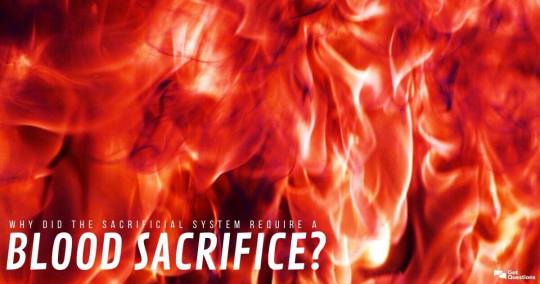
Are you scared yet???
When we hear of blood sacrifices what comes to mind?
Devil worshipping, doing something evil
And why and how did our preception of this become so?

Most of our perceptions of blood sacrifices comes from horror movies that are meant to cause over dramatic visuals.
When was the last time you saw a blood sacrifice?
People fear the unknown.
As European colonized the diaspora and Africa.
All aspects of African cultures especially the religion so to speak.
Random taunts of everything Africans did was devil worship and also Native Americans.
European's fear of the unknown, shifted the culture.

The same fault or superstition that was caste on Native Americans and Africans. Europeans are guilty of.
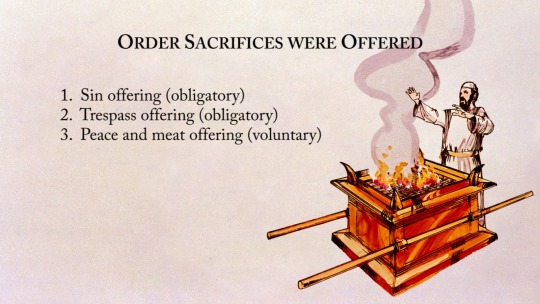
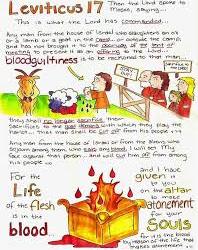
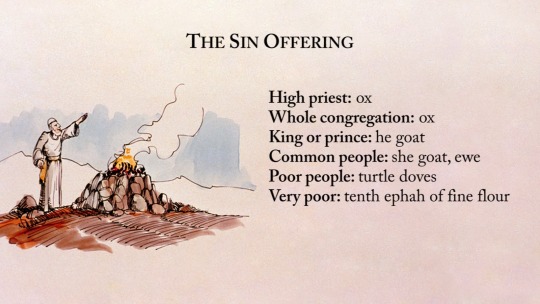
Leviticus 22:17-33 ERV
It might be because of a promise that person made, or it might just be a special sacrifice that person wanted to give to the LORD as a burnt offering.
If the gift is a bull, or a sheep, or a goat, the animal must be a male. And it must not have anything wrong with it. You must not accept any offering that has anything wrong with it. I will not accept that gift. “You might bring a fellowship offering to the LORD. That fellowship offering might be payment for a special promise that you made. Or maybe it is a special gift that you wanted to give to the Lord. It can be a bull or a sheep, but it must be healthy. There must be nothing wrong with that animal. You must not offer to the LORD any animal that is blind, that has broken bones or is crippled, or that has a discharge or a serious skin disease. You must not offer sick animals as a gift to the any animal that is blind, that has broken bones or is crippled, or that has a discharge or a serious skin disease. You must not offer sick animals as a gift to the LORD. You must not put anything like that on his altar. “Sometimes a bull or lamb will have a leg that is too long, or a foot that did not grow right. If you want to give that animal as a special gift to the Lord, it will be accepted. But it will not be accepted as payment for a special promise that you made.

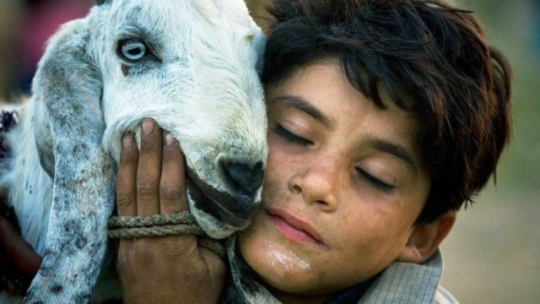
Qurbani means sacrifice. Every year during the Islamic month of Dhul Hijjah, Muslims around the world slaughter an animal – a goat, sheep, cow or camel – to reflect the Prophet Ibrahim's willingness to sacrifice his son Ismail, for the sake of God

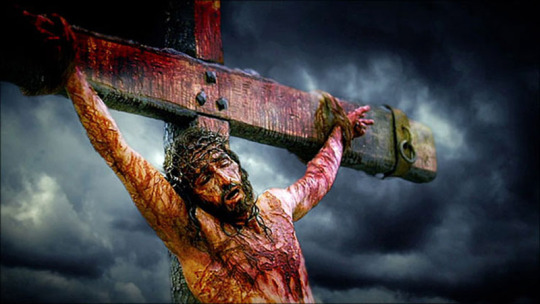
Human sacrifice???
A foundational doctrine of the Christian faith is that the sacrifice of Jesus Christ paid the penalty for the sins of mankind—that without this act of love by the Son of God, humanity would have no hope of life after death.

In the traditional Yoruba religion and culture, sacrifice is referred to as (Ebo). It connotes offering something to a particular deity or cult in other to be in communion with them or to seek favours.
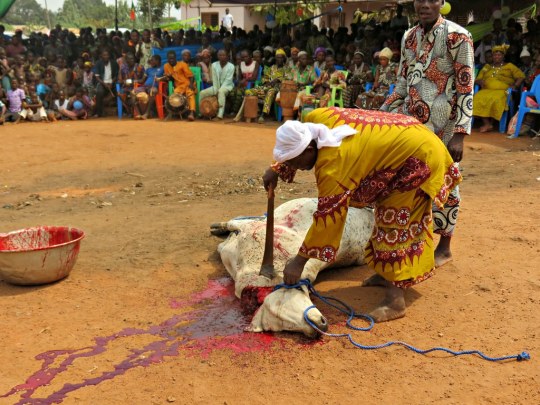
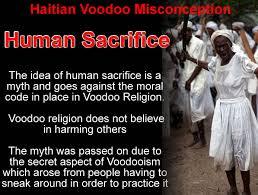
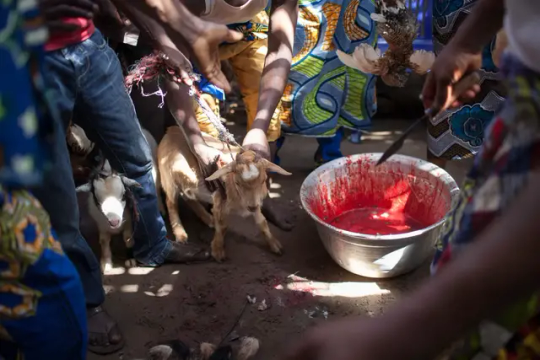
What is an EBO sacrifice?
Ebo, or sacrifice, is a broad concept including all types of sacrifices and offerings to the Orisha. These can include candles, fruit, candy, and various items or actions that may be appreciated by the Orisha. Ritual sacrifice is an important part of the beliefs and practices of Orisha worshipers.

Various scholars describe Vodou as one of the world's most maligned and misunderstood religions. Its reputation is notorious; in broader Anglophone and Francophone society, it has been widely associated with sorcery, witchcraft, and black magic. In U.S. popular culture, for instance, Haitian Vodou is usually portrayed as destructive and malevolent, attitudes often linked with anti-African racism. Non-practitioners have often depicted Vodou in literature, theater, and film; in many cases, such as the films White Zombie (1932) and London Voodoo (2004), these promote sensationalist views of the religion. The lack of any central Vodou authority has hindered efforts to combat these negative representations.
Since the 1990s, evangelical Protestantism has grown in Haiti, generating tensions with Vodouists; these Protestants regard Vodou as Satanic, and unlike the Roman Catholic authorities have generally refused to compromise with Vodouists

Leviticus 17:11 is the Old Testament’s central statement about the significance of blood in the sacrificial system. God, speaking to Moses, declares: “For the life of a creature is in the blood, and I have given it to you to make atonement for yourselves on the altar; it is the blood that makes atonement for one’s life.”
A “sacrifice” is defined as the offering up of something precious for a cause or a reason. Making atonement is satisfying someone or something for an offense committed. The Leviticus verse can be read more clearly now: God said, “I have given it to you (the creature’s life, which is in its blood) to make atonement for yourselves (covering the offense you have committed against Me).” In other words, those who are covered by the blood sacrifice are set free from the consequences of sin.

Ancient Egypt was at the forefront of domestication, and some of the earliest archeological evidence suggesting animal sacrifice comes from Egypt. However, animal sacrifice was not a central practice of Egyptian religion, but was rather a peripherical occurrence that happened away from worshippers. The oldest Egyptian burial sites containing animal remains originate from the Badari culture of Upper Egypt, which flourished between 4400 and 4000 BCE. Sheep and goats were found buried in their own graves at one site, while at another site gazelles were found at the feet of several human burials. At a cemetery uncovered at Hierakonpolis and dated to 3000 BCE, the remains of a much wider variety of animals were found, including non-domestic species such as baboons and hippopotami, which may have been sacrificed in honor of powerful former citizens or buried near their former owners. According to Herodotus, later Dynastic Egyptian animal sacrifice became restricted to livestock – sheep, cattle, swine and geese – with sets of rituals and rules to describe each type of sacrifice

Worship in ancient Greek religion typically consisted of sacrificing domestic animals at the altar with hymn and prayer. The altar was outside any temple building, and might not be associated with a temple at all. The animal, which should be perfect of its kind, is decorated with garlands and the like, and led in procession to the altar, a girl with a basket on her head containing the concealed knife leading the way. After various rituals the animal is slaughtered over the altar, as it falls all the women present "must cry out in high, shrill tones". Its blood is collected and poured over the altar. It is butchered on the spot and various internal organs, bones and other inedible parts burnt as the deity's portion of the offering, while the meat is removed to be prepared for the participants to eat; the leading figures tasting it on the spot. The temple usually kept the skin, to sell to tanners. The fact that the humans got more use from the sacrifice than the deity had not escaped the Greeks, and is often the subject of humour in Greek comedy

Practices of Hindu animal sacrifice are mostly associated with Shaktism, Shaiva Agamas and in currents of folk Hinduism called Kulamarga strongly rooted in local tribal traditions. Animal sacrifices were carried out in ancient times in India. Some later minor Puranas forbid animal sacrifice though the upapurana, Kalika Purana, describes it in detail.
Shaktism traditions
A male buffalo calf about to be sacrificed by a priest in the Durga Puja festival. The buffalo sacrifice practice, however, is rare in contemporary India.
Animal sacrifices are performed mainly at temples following the Shakti school of Hinduism where the female nature of Brahman is worshipped in the form of Kali and Durga. These traditions are followed in parts of eastern states of India at Hindu temples in Assam and West Bengal India and Nepal where goats, chickens and sometimes water buffalos are sacrificed.
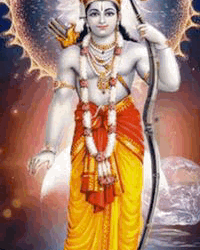
Sacrifice of Animals has less to do with worshipping of Satan or being evil.
Sacrifices are not all blood some are symbolic, fruits, money, clothes, aspects of life.
Kobe Byrant had to sacrifice friends and family to become who he is.
We all make some type of symbolic sacrifice that can be time or if you are a Celebrity, you sacrifice your privacy.
Abrahamic Cultures and Europeans superstition towards non-European cultures tend to cause our consciousness of Sacrifices.

#african#afrakan#kemetic dreams#africans#brownskin#afrakans#brown skin#african culture#afrakan spirituality#hindu#hinduism#hindu mythology#hindublr#hindu calendar#lord shiva#mahadev#hindustan#hanuman#hindutva#europeans#european#blood sacrifice#blood#sacrifice#the sacred feminine#sacramento#the sacred masculine#sacred heart#kobe byrant#shava
46 notes
·
View notes
Text
The Ismaili Muslim View of Mi'raj
Dr. Khalil Andani, an Assistant Professor of Religion and intellectual historian of Islamic thought, explains the Shi‘i Ismaili Muslim understanding of the Prophet’s Mi‘raj using Ismaili primary sources from the Holy Imams and the great Ismaili philosophical Da‘is. Click Here to read Ismaili Gnosis’ full-length research article on the Prophet’s Mi‘raj.
youtube
View On WordPress
0 notes
Text
O Allah! 🤲
Like You Saved Prophet Ismail (A.s.) from the Knife
Like You Saved Prophet Nuh (A.s.) from the Flood
Like You Protected Prophet Ibrahim (A.s.) from Fire
Like You Saved Prophet Yusuf (A.s.) from the Well
Like You Saved Prophet Ismail (A.s.) from the Knife
Like You Healed Prophet Ayyub (A.s.) from His Illness
Save Us from All of Our Troubles, Anxieties, Sickness, and Mistakes.
Ya Allah, Have Mercy on Us and Forgive Our Sins!
. . .
#allah#quran#islam#prophet#moses#prophetmuhammad#islamicquotes#allahisthemostmerciful#allahakbar#islamicpost#islamicpage#islamdaily#muslimah#muslimquotes#muslimreminder#islamposts#islamicworld#jannah#islamic#muslimreminders#faithinallah#trustallah#islamicreminders#alhamdulilah#islamicposts#ibrahim
6 notes
·
View notes
Text
Ibrahim AS - Chapter 2
Allah blessed Sarah with beauty, Imaan, a loving husband who was a prophet of Allah, but He did not give her a child. So, when Sarah saw Hajrah’s child, her heart started to ache.
Whether it was envy or jealousy, we have to understand that Sarah is a human, not a robot. She was so upset that she told Ibrahim AS to take the child away from there. She said, "If I kept looking at him, maybe I would kill him.
When you read about this incident, your heart suddenly becomes heavy. You expect perfection from pious people, and you don't expect human emotions from them. This is what we need to learn here: that prophets were also human beings, and their wives were too. They were not robots. They walked on the straight path of Allah with their emotions and desires, and so can we.
Therefore, everything you desire, and it looks very easy for someone else to find it in front of your eyes, while you beg Allah for it, seeing it will hurt you. There will also be jealousy. And the heart will break. These are your human emotions. Face them. Don't hide them under the carpet.
Sarah was a brave woman. She did not conspire against Hajrah’s son. She did not say bad things. She communicated her emotions to the person who could take a step. She went to Ibrahim AS and told him everything.
But what do we do when we have a problem with someone? We go to every X, Y, Z and vent out, take out our heart's frustration, and avoid that one person we have a problem with. Only one person whom we don't say anything to is the person who is the problem for us. We gossip because we are cowards. We are afraid to communicate our heartfelt emotions to that person. Sarah was brave. She said what she felt.
So, know that Allah understands your heartfelt emotions. If you think about this story, then Sarah said a huge thing (that she can take this child's life). Obviously, she wasn't going to take a life. She was expressing the intensity of her emotions because she didn't have any children of her own. How could another child in the house feel good? So, Sarah spoke out.
And who did Allah give support to?
Allah gave support to Sarah.
What would you do if you were there? If you see a woman in a similar situation, you might console her. You might say she should have a big heart, etc. But Allah understands humans like no one else can. Allah did not tell Ibrahim to ask his wife to have a big heart. Why?
“Because Allah knows we should never burden those with harsh words who are already wounded.”
Allah had tested Sarah by not giving her children. If Allah does not understand His servant's distress, then who will understand? So Allah commanded Ibrahim to take Hajrah and Ismail and leave from there and go to Makkah.
Allah is aware of our distress. He is the one who created us. He is the one with whose permission we get afflicted with pain. If He doesn't know our emotions, then who will? So don't think that Allah expects perfection from you when you receive trouble, and he expects you to smile and say, 'I'm fine.' Nooo!
Like Yaqoob AS, tell Allah, complain about your sorrow and pain to Him. Tell Him who you're complaining about. He understands whoever He gives trouble to. He who could understand Sarah's emotions when perhaps no other human could, why wouldn't He understand yours?
The troubles that come from Allah are also taken away by Allah, and the cure for the troubles caused by humans is also with our Lord. Why do we think He won't understand us?
#allah#islamdaily#quran#islamicreminder#lessons from quran#ayah from quran#islam#motivating quotes#prophetsaw#islamicquotes#islampost#islamicreminders#islamiyet#islamic#islamquotes#islamic quotes#islamic teachings#deen daily#deenbot#deenislam
8 notes
·
View notes